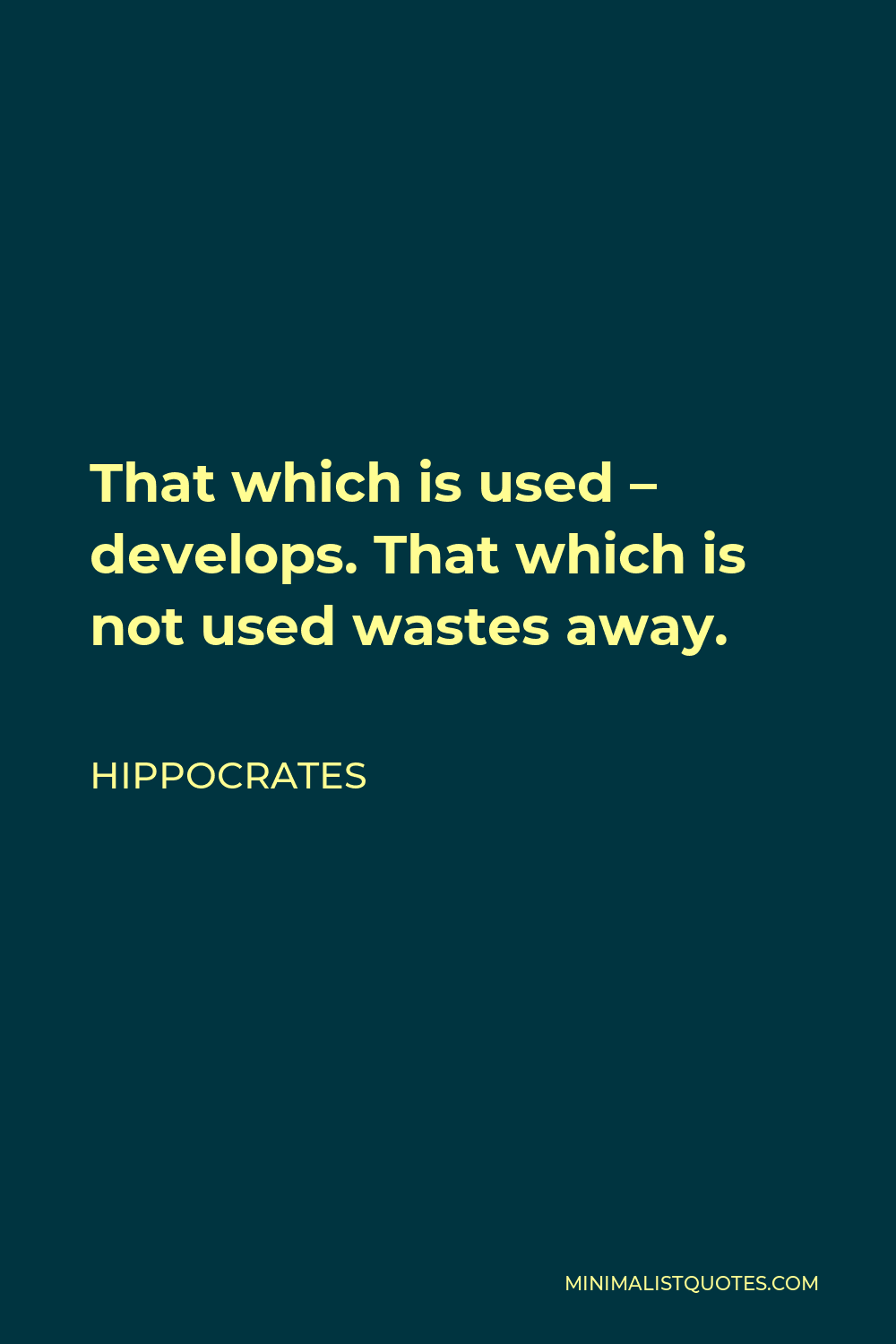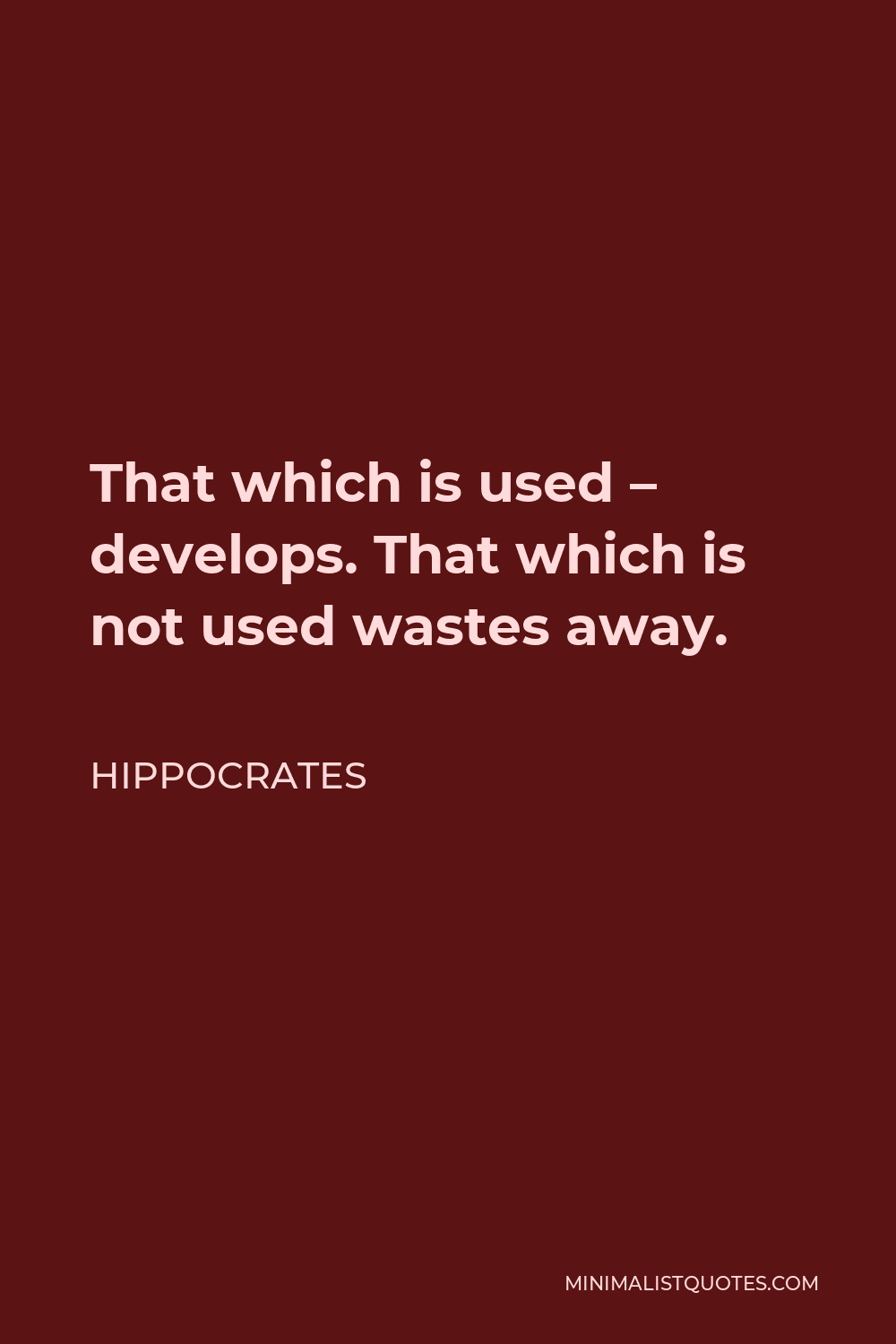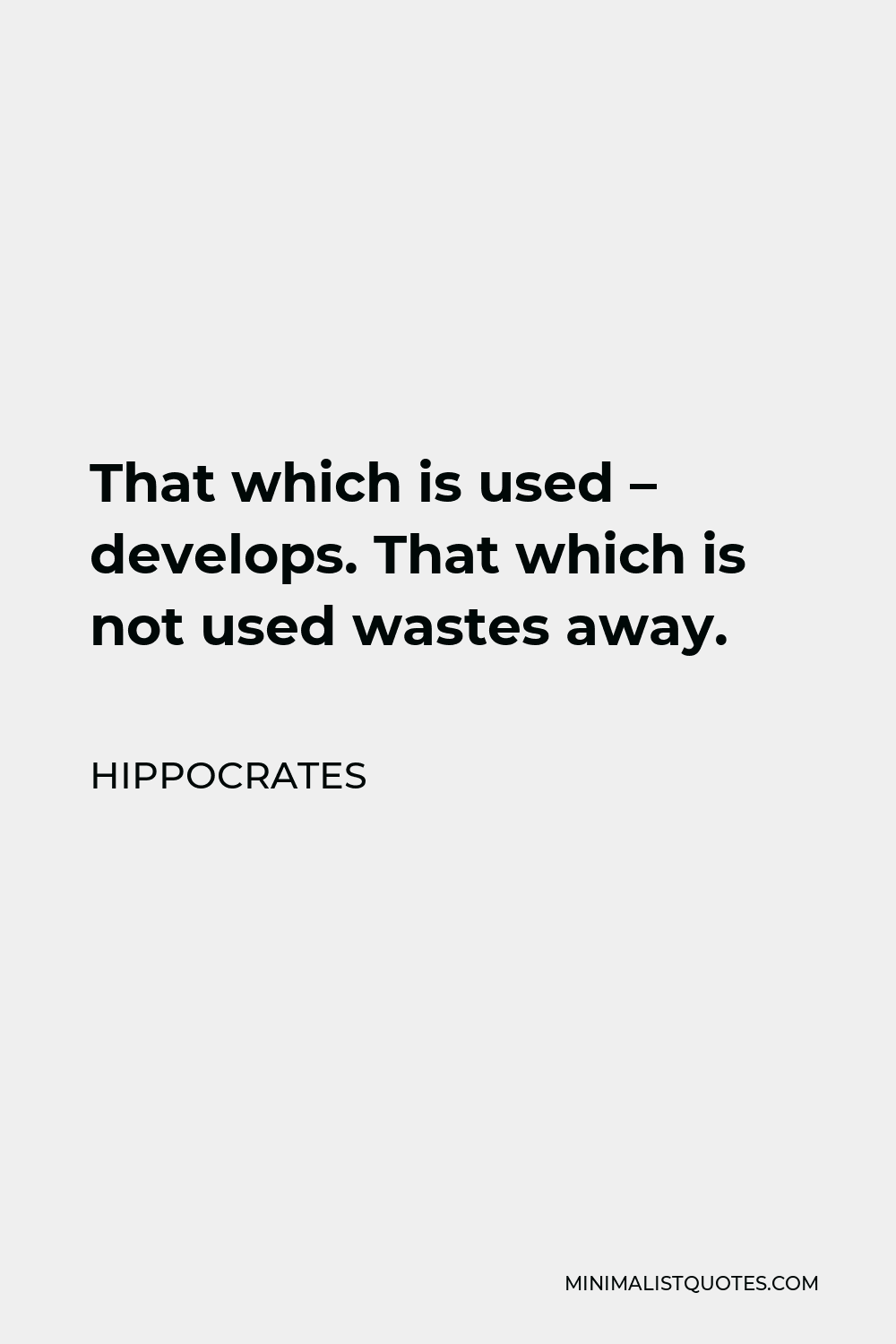All disease starts in the gut.
HIPPOCRATESThat which is used – develops. That which is not used wastes away.
More Hippocrates Quotes
-





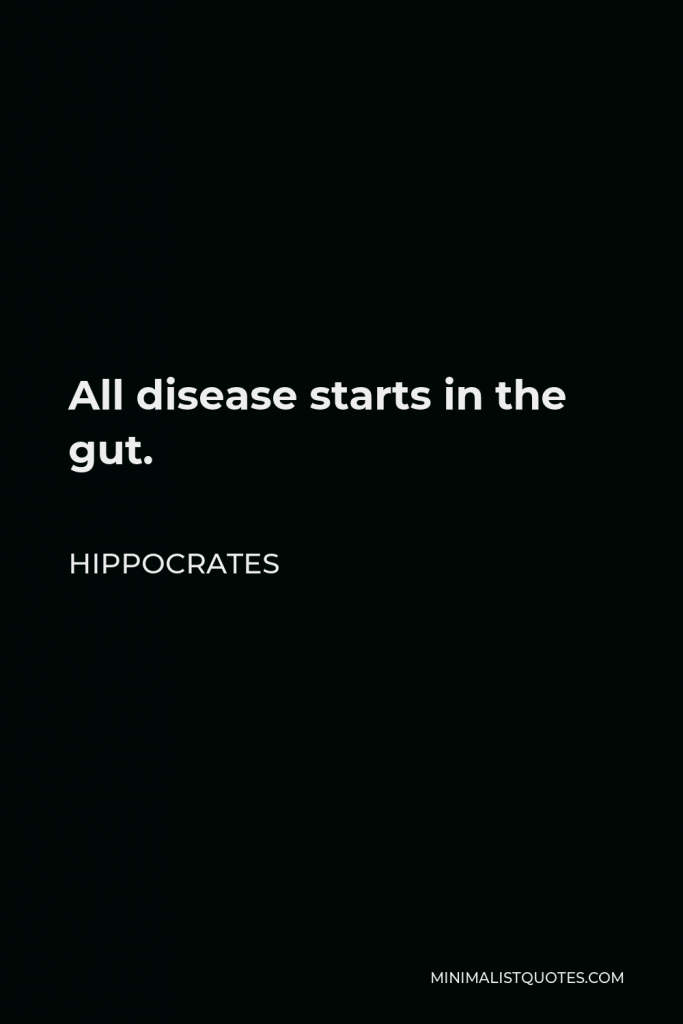

-





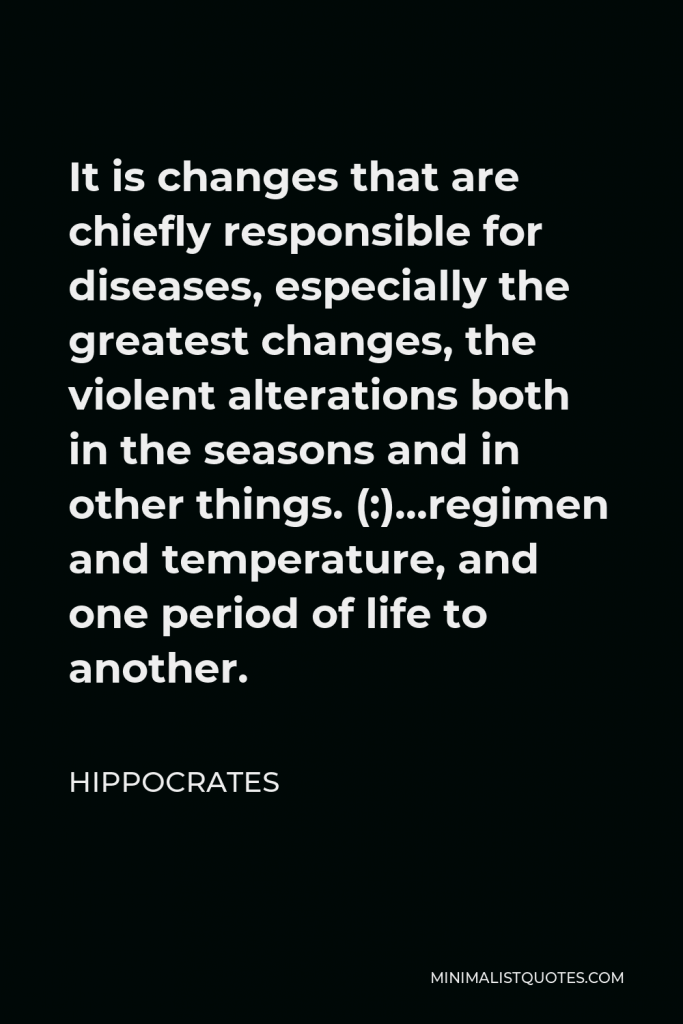

It is changes that are chiefly responsible for diseases, especially the greatest changes, the violent alterations both in the seasons and in other things. (:)…regimen and temperature, and one period of life to another.
HIPPOCRATES -





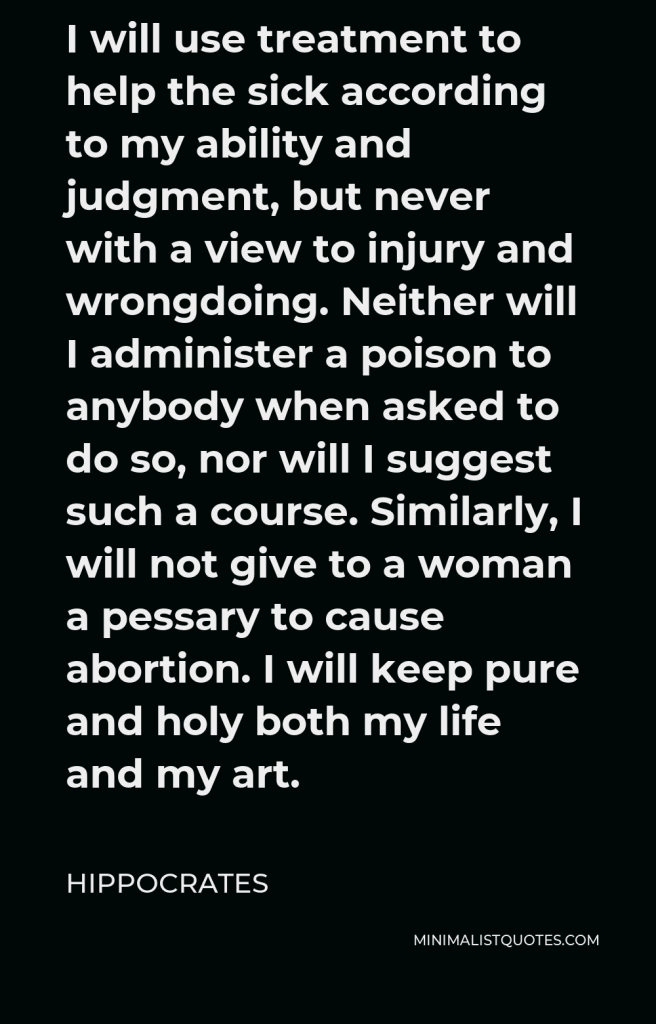

I will use treatment to help the sick according to my ability and judgment, but never with a view to injury and wrongdoing. Neither will I administer a poison to anybody when asked to do so, nor will I suggest such a course. Similarly, I will not give to a woman a pessary to cause abortion. I will keep pure and holy both my life and my art.
HIPPOCRATES -





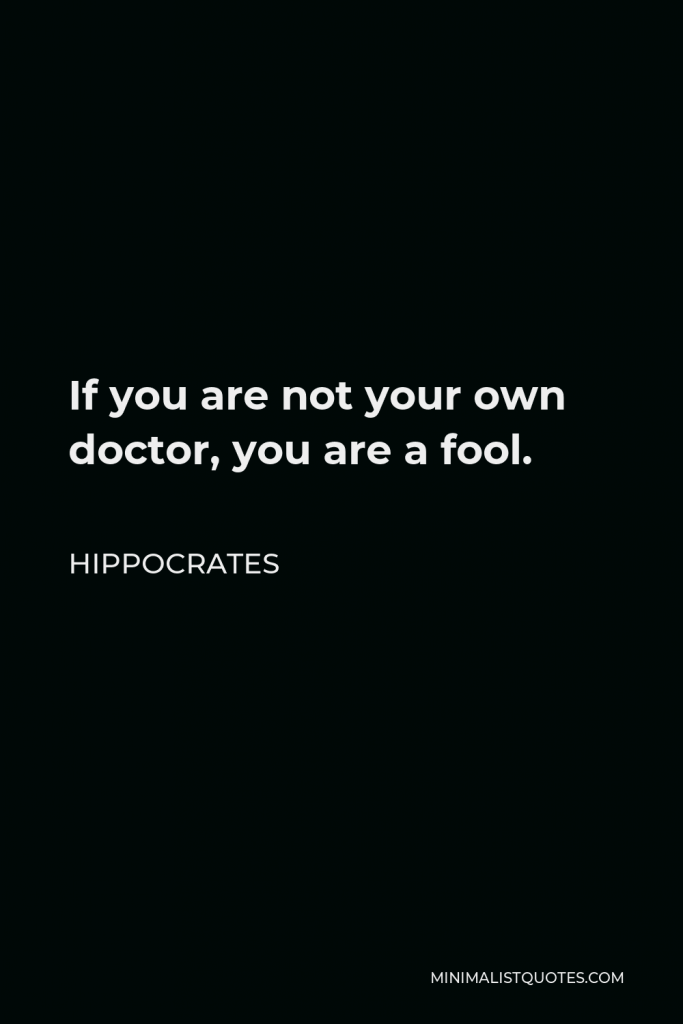

If you are not your own doctor, you are a fool.
HIPPOCRATES -







He who wishes to be a surgeon should go to war.
HIPPOCRATES -





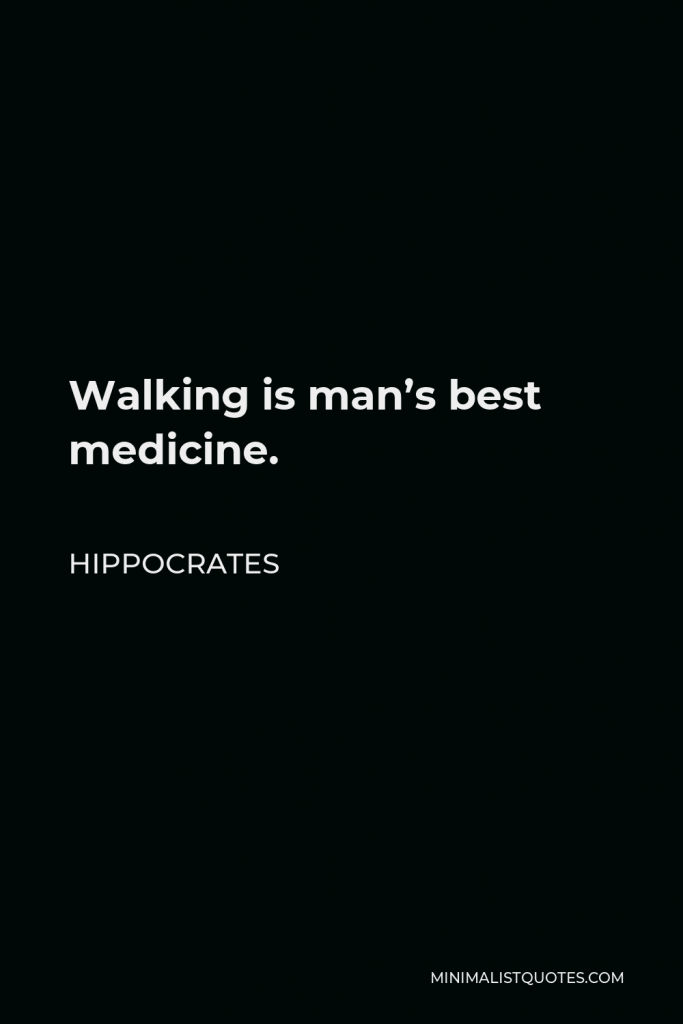

Walking is man’s best medicine.
HIPPOCRATES -







To do nothing is sometimes a good remedy.
HIPPOCRATES -





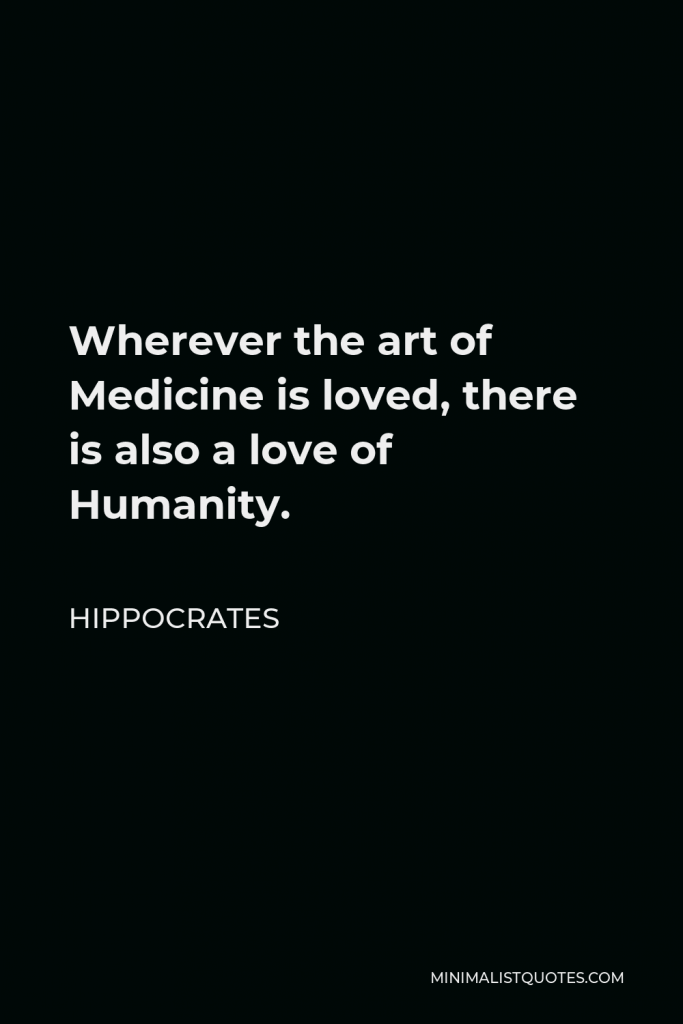

Wherever the art of Medicine is loved, there is also a love of Humanity.
HIPPOCRATES -





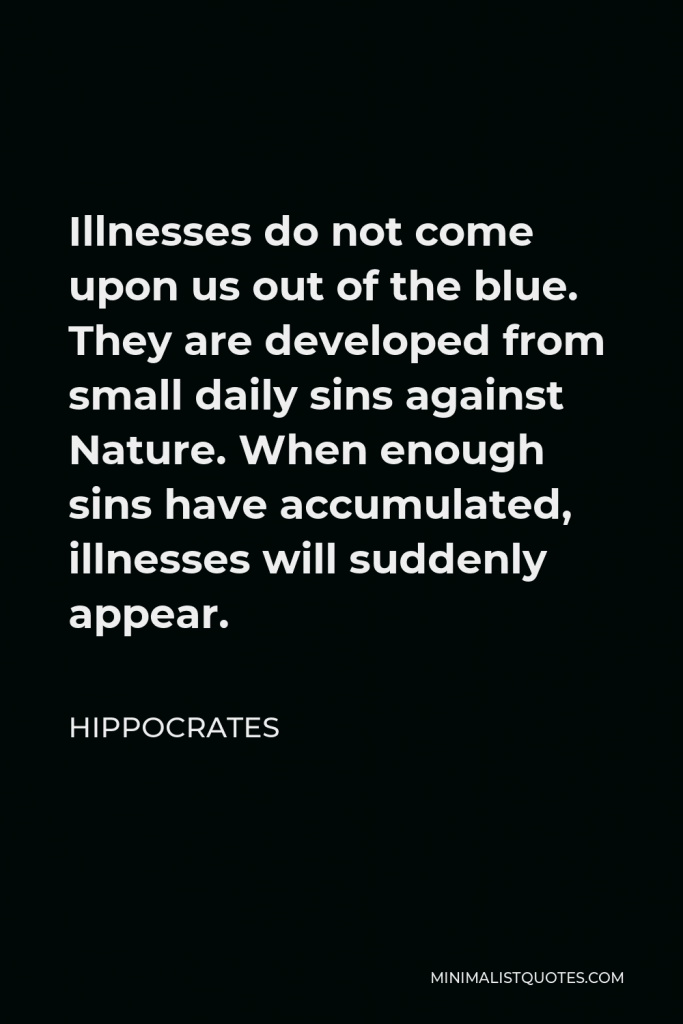

Illnesses do not come upon us out of the blue. They are developed from small daily sins against Nature. When enough sins have accumulated, illnesses will suddenly appear.
HIPPOCRATES -







The chief virtue that language can have is clearness, and nothing detracts from it so much as the use of unfamiliar words.
HIPPOCRATES -







In all abundance there is lack.
HIPPOCRATES -







I will give no deadly medicine to any one if asked, nor suggest any such counsel; and in like manner I will not give to a woman a pessary to produce abortion.
HIPPOCRATES -





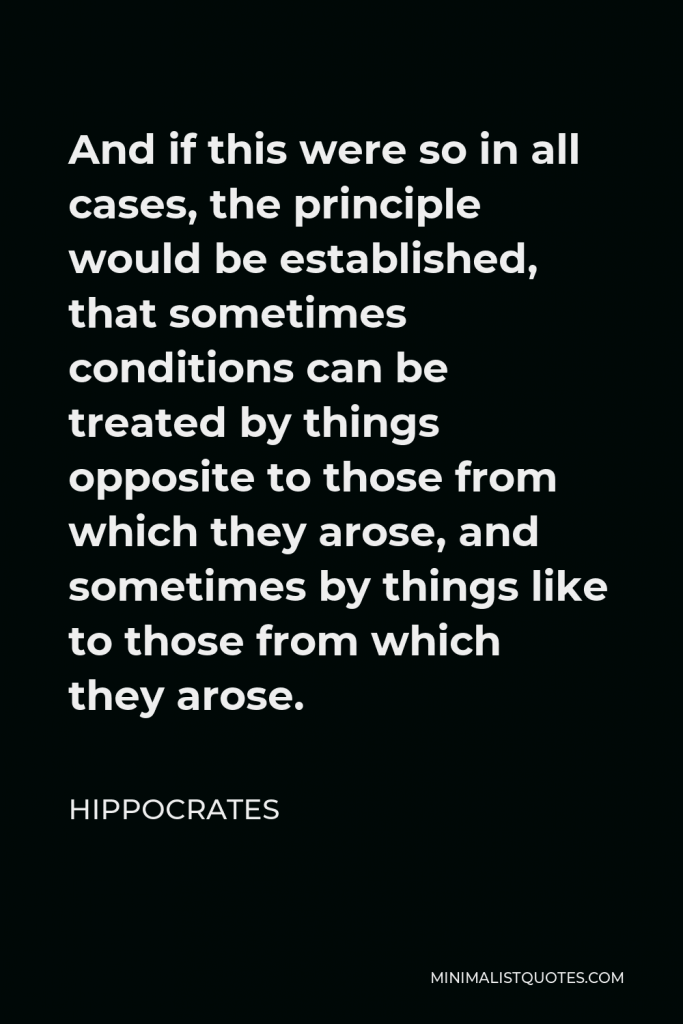

And if this were so in all cases, the principle would be established, that sometimes conditions can be treated by things opposite to those from which they arose, and sometimes by things like to those from which they arose.
HIPPOCRATES -







I swear… to hold my teacher in this art equal to my own parents; to make him partner in my livelihood; when he is in need of money to share mine with him; to consider his family as my own brothers and to teach them this art, if they want to learn it, without fee or indenture.
HIPPOCRATES -







Sometimes give your services for nothing.
HIPPOCRATES -





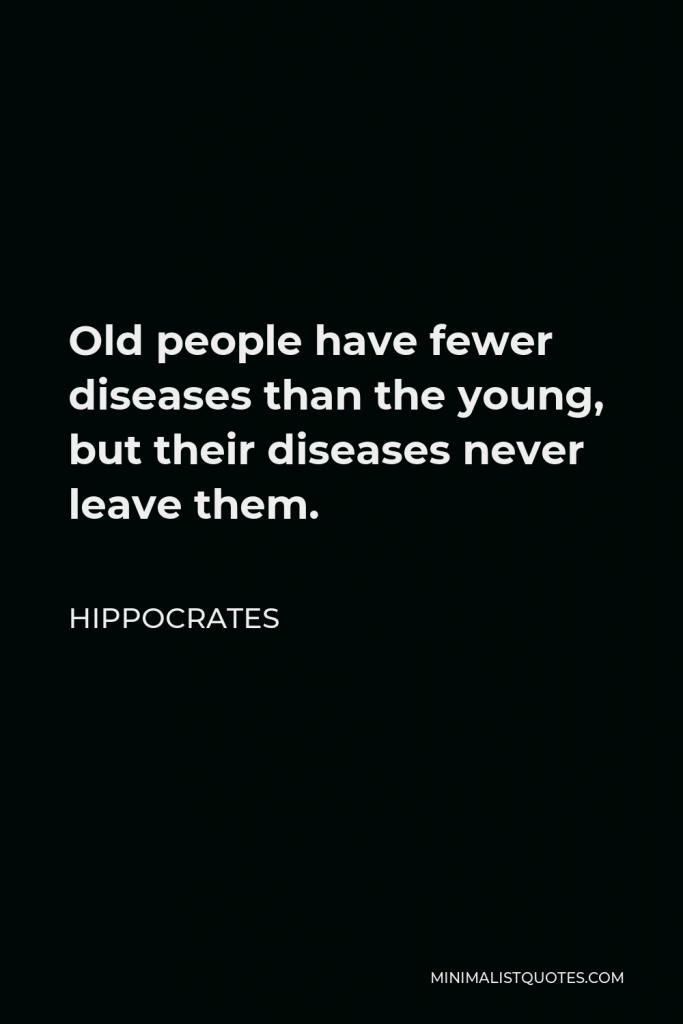

Old people have fewer diseases than the young, but their diseases never leave them.
HIPPOCRATES

